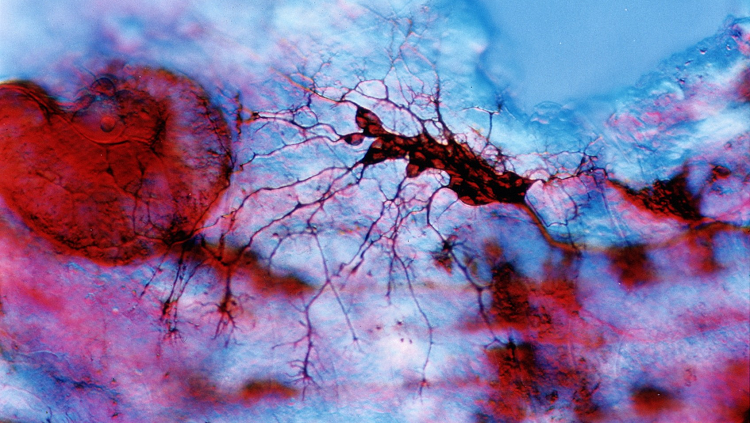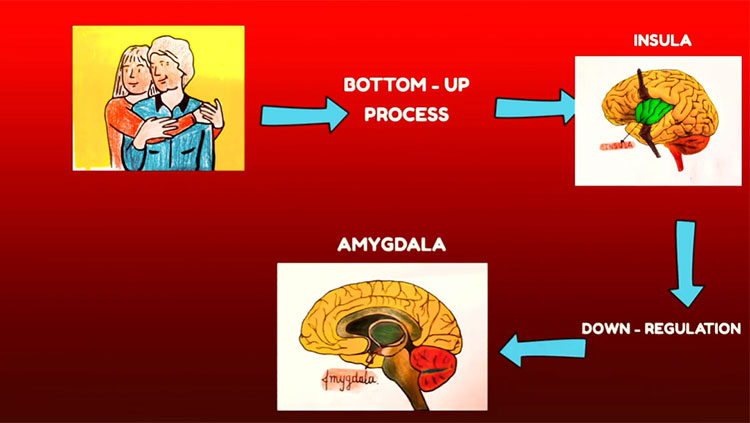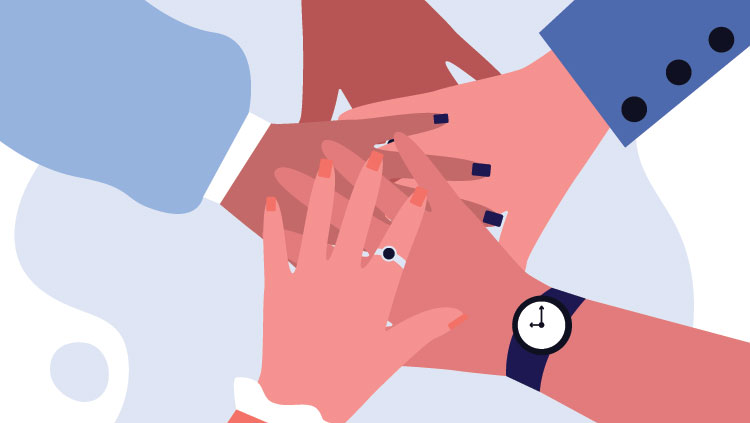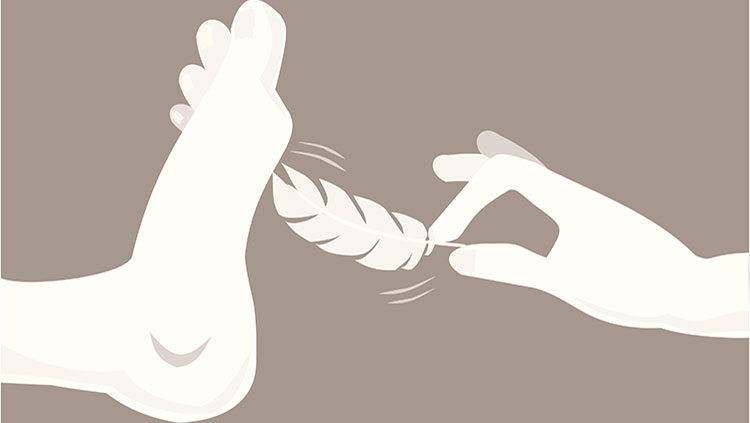Why You Can (Or Can't) Feel Your Tongue
- Published26 Nov 2019
- Author Charlie Wood
- Source BrainFacts/SfN
You rarely notice the feeling of your tongue sitting there in your mouth, but when you do it’s largely because of information passing through the trigeminal nerve at the level of your cheekbone. This nerve leaves the brainstem to form a bundle called the trigeminal ganglion. The ganglion appears small in this one-day-old zebrafish, but in humans it sends three major branches throughout your face.
When fully developed, one branch of the trigeminal nerve relays feelings from your forehead, sinuses, and parts of your eyeballs. Another branch handles parts of your nose and upper lip. A third branch takes care of your jaw — both sensation and chewing ability — and most of your tongue. If a dentist has ever numbed your mouth with a shot, the anesthetic drug acted on this third branch to shut down the nerve impulses. It connects only to the front two-thirds of your tongue though, which is why you still have sensations at the back after the shot.
CONTENT PROVIDED BY
BrainFacts/SfN
References
Khalil, H. (2014). A basic review on the inferior alveolar nerve block techniques. Anesthesia, Essays and Researches, 8(1), 3–8. doi: 10.4103/0259-1162.128891
Pazhaniappan, N. (2018, April 26). The Trigeminal Nerve (CN V). Retrieved from https://teachmeanatomy.info/head/cranial-nerves/trigeminal-nerve/
Also In Touch
Trending
Popular articles on BrainFacts.org



















